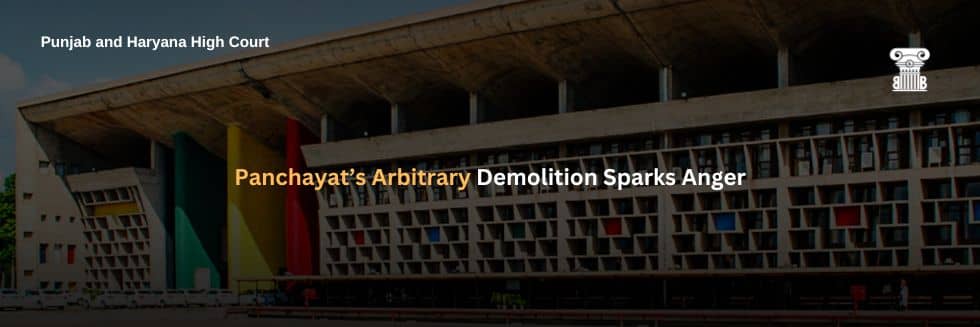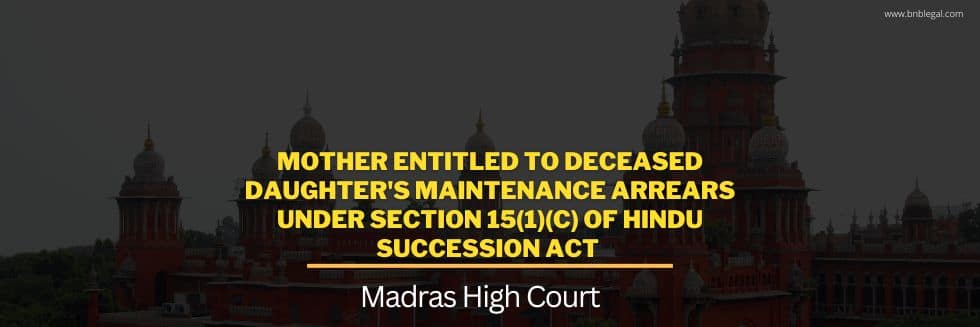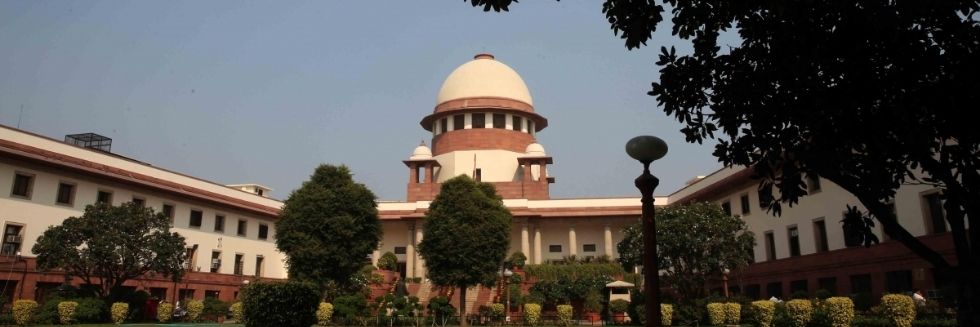While adjudicating an appeal in Prasanta Kumar Sahoo & Ors. v Charulata Sahu & Ors, Supreme Court held that in a suit for partition of joint property, a decree by consent amongst only some of the parties cannot be maintained.
The bench comprising Justice A.S. Bopanna and Justice J.B. Pardiwala noted that when a settlement deed has been executed in respect of a joint property, then such settlement must record written consent and signatures of ‘all’ the Parties in order to attain legality.
In 1969, Kumar Sahoo died and was survived by his three children including Ms. Charulata (daughter), Ms. Santilata (daughter) and Mr. Prafulla (son).
His daughter Chaturlata filed a partition suit in Trial Court on December 3, 1980 and claimed 1/3rd share in the ancestral and self-acquired property of her father.
On 30th December 1986, the Trial Court passed a preliminary decree which determined that Ms. Charulata and Ms. Santilata had a rightful claim to 1/6th of the ancestral properties and 1/3rd of the self-acquired properties of Late Kumar Sahoo. The Trial Court also ruled that the daughters were entitled to mesne profits. On the other hand, Mr. Prafulla (son) was declared to have a rightful claim to 4/6th share in the ancestral properties and 1/3rd share in the self-acquired properties of Mr. Sahoo, which included the mesne profits.
Mr. Prafulla, dissatisfied with the Trial Court’s decision, appealed to the High Court, claiming that all of Mr. Sahoo’s properties were ancestral. While the appeal was ongoing, Mr. Prafulla and Ms. Santilata entered into a Settlement Deed on 28th March 1991, in which Ms. Santilata relinquished her share of the joint property in favor of Mr. Prafulla for a consideration of Rs. 50,000/-. However, Ms. Charulata did not sign the Settlement Deed, as she had a share in the joint property.
Mr. Prafulla continued to pursue the appeal before the High Court on the issue of whether certain properties were ancestral or self-acquired by his father. Meanwhile, Ms. Charulata challenged the validity of the Settlement Deed. Mr. Prafulla filed a compromise petition in the ongoing appeal before the High Court. The Single Judge of the High Court ruled that the Settlement Deed was valid and that Mr. Prafulla was entitled to Ms. Santilata’s share of the property. However, the question of which properties were ancestral or self-acquired was not addressed, and a Letter Patent Appeal was filed before the Division Bench of the High Court on this issue alone.
On 5th May 2011, the Division Bench of the High Court rejected Mr. Prafulla’s appeal and invalidated the Settlement Deed. Mr. Prafulla then filed an appeal before the Supreme Court, arguing that the amendments to the Hindu Succession Act, 1956, which made daughters equal co-parceners as sons, could not be applied retroactively. He further argued that Ms. Santilata’s rights had already been transferred to him through the Settlement Deed.
The Bench noted that under Order XXIII Rule 3 of the Civil Procedure Code, 1908, when a claim in a lawsuit has been fully or partially settled through a legal agreement or compromise, the compromise must be in writing and signed by the parties. In this case, the Settlement Deed dated 28th March 1991 was only executed between Mr. Prafulla and Ms. Santilata in regard to the joint property held by all three siblings.
Since Ms. Charulata, the third sibling and co-owner of the joint property, did not sign the settlement, the Bench declared it unlawful for not having the written consent of all parties. In a lawsuit for partition of joint property, a decree by consent among only some parties cannot be upheld.
The Bench confirmed the share allocation determined by the Trial Court and the Division Bench of the High Court, and reevaluated the parties’ shares. The Bench invalidated the Settlement Deed, and Mr. Prafulla could not claim Ms. Santilata’s share.
Hindu Succession Act 1956 – The institution of a suit for partition by a member of a joint family is a clear intimation of his intention to separate, and there was consequential severance of the status of jointness- in case during the pendency of partition suit or during the period between the passing of preliminary decree and final decree in the partition suit, any legislative amendment or any subsequent event takes place which results in enlargement or diminution of the shares of the parties or alteration of their rights, whether such legislative amendment or subsequent event can be into consideration and given effect to while passing final decree in the partition suit- even though filing of partition suit brings about severance of status of jointness, such legislative amendment or subsequent event will have to be taken into consideration and given effect to in passing the final decree in the partition suit-This is because, the partition suit can be regarded as fully and completely decided only when the final decree is passed. It is by a final decree that partition of property of joint Hindu Family takes place by metes and bounds -Para 73(C)- followed Vineeta Sharma v. Rakesh Sharma and Ors., (2020) 9 SCC 1;
Partition Suit – Hindu Succession Act 1956 – Effect of 2005 amendment to pending partition suit- . As the law governing the parties has been amended before the conclusion of the final decree proceedings, the party benefitted by such amendment (like the two daughters in the case on hand) can make a request to the Trial Court to take cognizance of the Amendment and give effect to the same- Para 80-followed Vineeta Sharma v. Rakesh Sharma and Ors., (2020) 9 SCC 1.
Code of Civil Procedure – Order XXII Rule 3-when a claim in suit has been adjusted wholly or in part by any lawful agreement or compromise, the compromise must be in writing and signed by the parties and there must be a completed agreement between them-. In a suit for partition of joint property, a decree by consent amongst some only of the parties cannot be maintained – Para 93, 94.
Code of Civil Procedure – Order XXII Rule 3-d advocate appearing for the Defendant could have signed the compromise petition without an express consent. It is an imperative duty of the Court to ascertain the genuineness and lawfulness of the compromise deed – Para 100.






